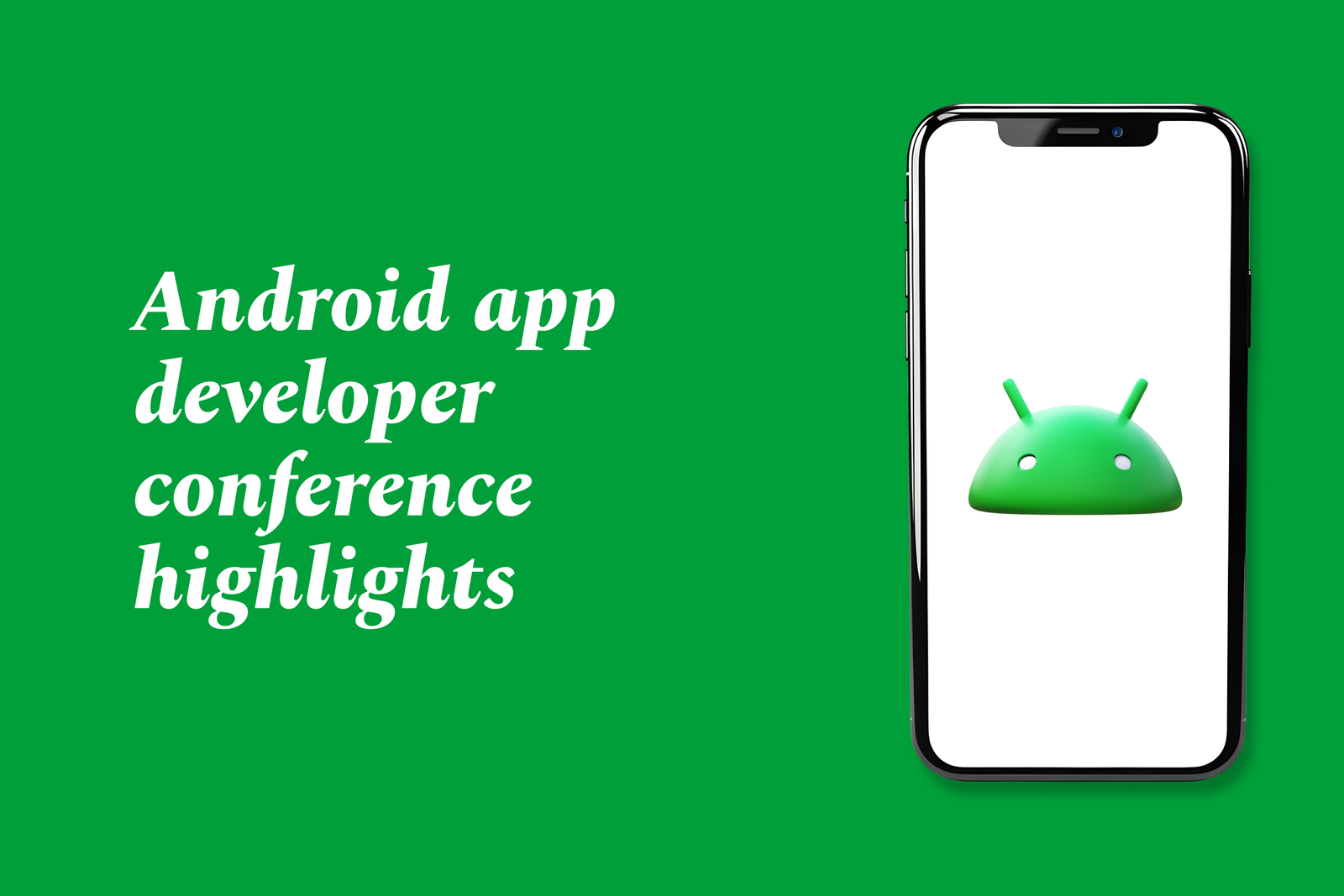Android App Developer Conference Highlights
The Android App Developer Conference is a premier event where developers and experts explore the latest Android tools, updates, and best practices. It features keynotes, workshops, and networking to help create innovative, efficient, and accessible Android applications.
Android App Developer Conference Highlights
1 ) Introduction to the Conference
The Android App Developer Conference showcased the latest trends, tools, and techniques in Android development. It brought together developers, industry experts, and Google engineers to share knowledge and innovations.
2 ) Keynote Sessions
Leading Android engineers presented keynote speeches focusing on new features in the Android platform, best practices for app development, and insights into future updates. Emphasis was placed on performance improvements, security enhancements, and user experience optimization.
3 ) Advanced Development Workshops
Hands on workshops covered topics such as Jetpack Compose, Kotlin Coroutines, and the integration of AI and machine learning in Android apps. These sessions aimed to equip developers with practical skills to create modern, efficient applications.
4 ) New Tools and SDK Releases
Attendees were introduced to the latest Android Studio updates and Software Development Kits (SDKs) that streamline the development process. The conference highlighted improved debugging tools and enhanced profiling capabilities.
5 ) Networking and Collaboration Opportunities
The event provided ample opportunities for networking, enabling developers to connect with peers and industry leaders. Collaboration sessions encouraged knowledge exchange and fostered community growth.
6 ) Focus on Inclusive and Accessible Design
Sessions emphasized the importance of creating apps that are accessible to all users, including those with disabilities. Best practices for inclusive design and testing accessibility features were discussed.
7 ) Closing Remarks and Future Outlook
The conference concluded with a vision for the future of Android development, highlighting the growing role of cross platform compatibility and the expanding Android ecosystem. Attendees left with inspiration and practical knowledge to advance their projects.
https://justacademy.in/news-detail/building-ai-first-apps-with-flutter
https://justacademy.in/news-detail/new-material-3-support-in-flutter-ui-toolkit
https://justacademy.in/news-detail/flutter-ai-sdk-vs-traditional-ml-kits
https://justacademy.in/news-detail/using-google’s-vertex-ai-with-flutter-apps
https://justacademy.in/news-detail/best-flutter-practices-every-developer-should-follow
Related Posts
Java supports GDPR and data privacy by enabling secure data handling through encryption, controlled access, and precise data management. It allows developers to minimize PII exposure, ensure data confidentiality, and design workflows that comply with data protection regulations effectively.
Java code quality tools have evolved to include advanced static analysis, integrated security checks, and AI-powered code reviews. These updates help developers detect bugs, enforce coding standards, and enhance security, streamlining the development process and improving overall code reliability.
Java remains a cornerstone in big tech companies, evolving with modern features like records, pattern matching, and virtual threads. Its robust ecosystem, enhanced performance, and growing AI integrations keep it vital for both legacy systems and innovative new projects.
Java and CI/CD pipeline optimizations streamline Java application development by automating builds, tests, and deployments. They improve efficiency through parallelization, caching, and secure secrets management, enabling faster feedback loops and more reliable, scalable software delivery.
Java supports modern cryptography standards through its flexible Java Cryptography Architecture (JCA), enabling integration of advanced algorithms like AES, EdDSA, and post-quantum tools. Libraries like Bouncy Castle offer FIPS-certified, hardware-accelerated implementations for secure development.
Java 23 enhances record patterns by enabling concise, direct destructuring of record components within pattern matching, simplifying type checks and data extraction. This improvement boosts code readability and expressiveness by reducing boilerplate in handling immutable data classes.
Java remains a top choice for mobile app backends, powering scalable, secure, and high-performance server-side solutions. Latest trends include cloud-native microservices, reactive programming, and enhanced JVM optimizations, enabling efficient, flexible, and robust mobile backend development.
Java SE 24 and LTS Java SE 21 offer enhanced features and performance, while Apache Spark 4.0.0 introduces Scala 2.13 support and advanced ML and SQL capabilities. Together, they empower developers to build scalable, high-performance data applications with modern tools.
JUnit 5 modernizes Java testing with a modular architecture, improved assertions, and seamless Java 8+ support. Beyond JUnit, tools like Mockito and AssertJ enhance mocking and assertions, creating a powerful, flexible ecosystem for writing clean, efficient Java unit tests.
Java plays a pivotal role in cloud automation tools by providing a robust, platform-independent language used to build scalable automation frameworks like Jenkins and Selenium, enabling efficient CI/CD pipelines, testing, and orchestration across diverse cloud environments.










